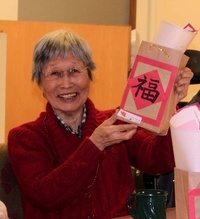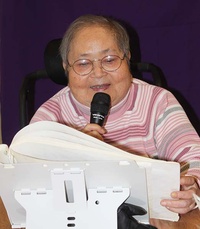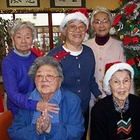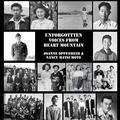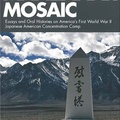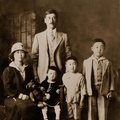Having surveyed the landscape of Nikkei long-term care choices in Los Angeles, the Bay Area, Sacramento and San Jose, I turned my attentions to Seattle, the last stop on my reporting tour. Although Japanese immigrants began arriving in Seattle in the late 19th-century, its Nihonmachi population has always been small compared to cities such as San Francisco and Los Angeles. At its peak, there were 8,500 members, according to Preservation Seattle magazine, and that number dwindled during the Depression. After the mass roundup and imprisonment of Japanese during World War II, many Seattle Nikkei did not return, instead relocating to less hostile Midwestern cities. In the latter half of this century, suburban areas—among them Bellevue, Redmond and Everett—exploded, drawing many remaining Nikkei residents away from their historic downtown neighborhoods. Vietnamese and Chinese residents now outnumber Japanese in the city’s historic Japantown.
Perhaps because of its Nikkei population’s relatively small size and scattered population, Seattle is home to only one Japanese-American senior care organization, the 35-year-old Nikkei Concerns. In other cities, I found several different organizations offering a patchwork of Japanese-oriented eldercare services; in Seattle, Nikkei Concerns covers every level of care. The umbrella organization oversees the 150-bed skilled-nursing facility Seattle Keiro; a 50-unit assisted-living facility, Nikkei Manor; an adult day program, Kokoro Kai, and a continuing education program for healthy seniors called Nikkei Horizons.
With an annual budget of about $18 million, the non-profit organization is second in size among U.S. Nikkei eldercare operations to Keiro Senior Healthcare in Los Angeles, says Randi Saeter, Nikkei Concerns’ Seattle Keiro nursing home administrator, although it is only one-third the size of the Southern California Keiro organization (the two are separate non-profit entities). Almost all the residents in Nikkei Concerns’ 50 assisted-living units and about 47 percent of its 150 nursing home residents are Nikkei. Yet overall—like the other West Coast eldercare facilities I have written about—the ratio of Japanese to non-Japanese residents is changing.
To better serve these growing ethnic populations, Nikkei Concerns continues to attract employees who can communicate with them in their native tongues. More than 20 different languages can be heard among the employees of its highly diverse staff, rivaling The Asian Community Center of Sacramento Valley and the Little Tokyo Service Center in this regard. Although non-Japanese residents are still in the minority, a mini-United Nations of five different resident councils meet regularly, each conducted in a different language: English, Japanese, Korean, Chinese and Vietnamese. Outside of council meetings, communication among the polyglot residents and staff members “never seems to be a problem,” says Saeter. “Everyone pitches in and will interpret when the need presents itself.” The many cross-cultural friendships among residents are proof that they are not only communicating, but getting along with each other as well.
Despite its pan-Asian complexion, however, Nikkei Concerns remain focused on Japanese cultures and values, says Saeter, and this is a draw for the majority of residents. Nikkei Horizons offers classes in Japanese calligraphy and the card games hanafuda and hyakunin isshu; Seattle Keiro holds Japanese storytelling events and ikebana (flower arranging) classes. Nikkei Concerns’ two kitchens serve primarily Japanese foods; typical fare includes miso soup every morning and rice at every meal. Entrées, a mix of Asian and western dishes, have broadened to include more Asian specialties, such as Korean barbecue ribs.
For now, the Nikkei Concerns system is working. The organization is able to keep its ledger in the black through a combination of full-paying or insurance-sponsored residents, Medicaid and Medicare reimbursements and fundraising events. “We’re fortunate that people are generous with us,” says Saeter, “the community continues to support us with donations as an expression of their kimochi (compassion). In fact, we have seen an increase in donations.”
Yet the organization’s tenuous fiscal balance is being challenged. “Medicaid reimbursements have been cut significantly by the State legislature as a measure to balance the Governor’s budget,” reports Saeter. “We’re looking at a six-hundred-thousand-dollar budget shortfall in 2011, based on reimbursement cuts alone.” These reductions led Nikkei Concerns to conduct a lengthy budget review process and implement stringent measures to manage expenses across all departments. Saeter notes, “We did not cut any nursing staff, or any services that benefit residents. We are here to protect our people. We will make sure they remain unaffected to the extent possible.”
Like many other senior care facilities, Seattle Keiro also accepts Medicare patients. While the state-sponsored Medicaid program provides financial assistance to low-income elderly residents for long-term care, the Federal Medicare program provides hospital and medical insurance to people over 65. In a nursing home setting, Medicare patients are usually short-term rehabilitation patients recovering from stroke, injury, illness or surgery. They are reimbursed at a much higher rate than long-term nursing home patients and can help generate much needed revenue.
The organization is taking an activist stance on the issue of nursing home care reimbursements. “We’re being the squeaky wheel,” says Saeter, “so legislators will know that we are not going to stop fighting for our residents and our community.” Nikkei Concerns has formed a coalition with three other non-profit organizations to advocate against further Medicaid reimbursement cuts in the state, and members have traveled to the state capitol in Olympia to testify for continued funding. The coalition works with the state’s Aging and Disability Services Administration and the assisted living and skilled nursing facility organization Washington Healthcare Association to keep abreast of ongoing legislative changes and come up with possible solutions for the legislature to consider.
In addition to facing financial challenges, Nikkei Concerns is focused on maintaining community awareness of the services it provides as Sansei and Yonsei (third- and fourth-generation Japanese Americans) are tempted to opt for non-Japanese retirement and nursing homes. The organization has launched a program called Nikkei Concerns Way to expand its service area and create partnerships with churches and senior centers outside city limits, says Saeter. The process of extending its transportation systems to connect to outlying communities has already begun, and response, says Saeter, has been enthusiastic. “They’re so excited to see us, and say to us, ‘It’s about time you’re coming down this way.’”
As part of this effort, Nikkei Concerns Way is also expanding its educational program at the White River Buddhist Church in Auburn, south of Seattle. The program will be run by Nikkei Horizons, the continuing education arm of Nikkei Concerns, which offers an extensive array of classes, activities, trips and outings for Seattle seniors.
Plans are also afoot to enhance and/or create an array of services throughout King County. “There are ways to extend the front door of Nikkei Concerns,” says Saeter. “We need to go to them, because they can’t always come to us.” This includes home health care as an increasing number of seniors express the desire to remain in their homes. “We would like to assist in keeping them independent for as long as possible” says Saeter.
The challenges ahead are serious and real, yet Saeter notes that Nikkei Concerns has a sterling reputation to maintain, and the determination and resources it needs to do that. “We have strong support in the community,” she says. “Family members and acquaintances of residents come and visit on a daily basis, and we have over two hundred volunteers at Nikkei Concerns. That’s huge.”
© 2011 Nancy Matsumoto


